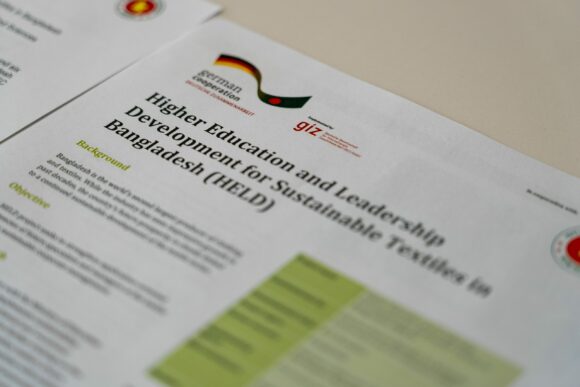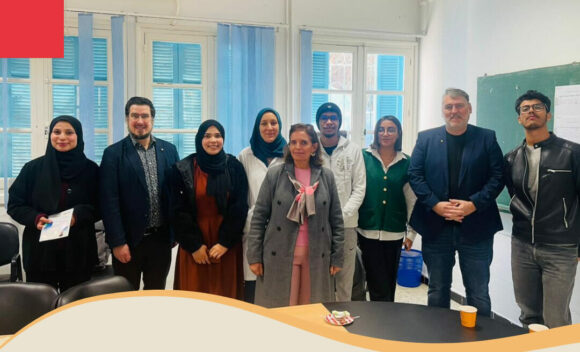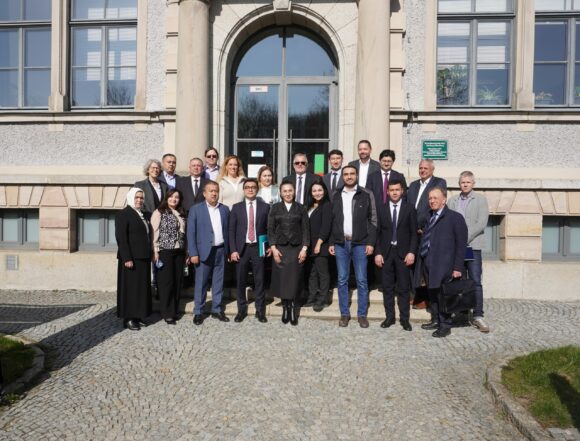With around 160 participants, the 8th EUROPA-FORUM showed that Hof University of Applied Sciences is achieving its goal of engaging in dialogue with civil society: “The EU provides direct benefits here in the region,” said Vice President Prof. Dr. Valentin Plenk, who opened the event. He added that the university solicits a lot of funding, which benefits local companies and organizations. This year’s forum focused on trade relations between China and Europe, as many Upper Franconian companies have contacts with the Far East.

“China is a world power. We simply have to deal with this country,” moderator Matthias Will of the Frankenpost also said in his intro. The world has become unstable, he said, and Germany must clarify for itself how it deals with China, because on the one hand the two are bitter competitors, but on the other hand they are also closely intertwined economic partners.
Different level of values
“China has twice the surface area of Europe and three times the population,” said Professor Peter Schäfer, who is the brainchild and organizer of the forum. For him, he said, the goal is for the forum to keep alive and continually renew the idea of European unification. After seventy years of peace rule, he said, this is still very important. “China has strengthened enormously and the EU is surprised that China wants something different from the EU,” said Finn Mayer-Kuckuk, who was invited to the Europe Forum as a proven China expert and keynote speaker. “It is typical that China turns right and then turns left after all.” European countries and China are not connected on the value level, the expert continued.

Germany will lose importance
Nevertheless, China would remain the EU’s most important trading partner. Finn Mayer-Kuckuk, who as capital city correspondent also reports on the German government’s China policy, captivated the audience with many facts and good explanations: “Did you know that there are 33 VW plants in China, and only 66 in Germany in total?” And he also has a tip for Hof University of Applied Sciences: “China can do Applied Sciences very well, Hof University of Applied Sciences should deal with China.” For him, it is clear that China wants to regain its ancestral place of a superpower, on par with the U.S., and that Germany will lose significance. He said that they are in a race of technologies, and the question is whether Germany knows it: “Germany has to get over the idea of being friends with everybody. China is not a friend,” says the China expert, who himself lived in the Middle Kingdom for a long time. His conclusion is nevertheless encouraging: “China has come to stay. The EU’s ability to act can be seen in its dealings with China. Here, German politics may dare to take more of a lead.”
Companies want to reduce dependence
The head of the language center at Hof University of Applied Sciences, Professor Dunja Stadtmann, presented a brief outline of 2500 years of Chinese legal history. It was interesting to hear that the German Civil Code also had a strong influence on the development of Chinese law. However, with the beginning of China’s communist era, an administration with a minimal amount of legislation began. Since this “zero hour”, laws have again emerged, of which “The Equity Joint Venture is of high value”, was Professor Stadtmann’s assessment.

Surprising also the realizations from the Bachelor thesis of Ole strong: The student evaluated in its work that the topic China in the Bundestag has a ever further rising relevance with the speeches and that approximately 50 per cent of the German companies want to reduce their dependence on China.
Tough honey walls
“For about twenty years, I have been in a sporting competition with China,” says Michael Kretzer of the Max Pharma company in Gattendorf near Hof. The Upper Franconian pharmaceutical wholesaler, who had settled early on in Dalian, a port city on the Liandong peninsula, together with a Chinese employee, told why a joint venture was so important for him: “Chinese laws are interpreted freely, you don’t always recognize the true circumstances.” With the help of his partners, he said, he was able to gain a foothold in the rapidly expanding Chinese market and build good relationships. At some point, however, it became clear that his company had simply been there for the Chinese partner to get Chinese construction funds for grant applications. When that development was complete, he “ran into a wall of honey” with the local authorities; everything had been tough. He decided to stay outside China’s borders and organize trade from there, and recommends this approach to other, small companies from Germany.
Lively discussion
In the audience, the points of view presented were taken up and discussed with interest: A larger company from the region discussed its positive experiences in the Chinese market and compared them with those of small companies. The likelihood of an attack on Taiwan was discussed. Briefingdienst editorial director Finn Mayer-Kuckuk assessed a direct war of aggression as unlikely – but much more likely a “salami tactic” of gradual attrition. Representatives of the Upper Franconia Chamber of Industry and Commerce discussed mediation as an advantageous conflict resolution with Professor Dunja Stadtmann. Interested questions about the assessment of the current German foreign policy with China and about international students at Hof University were also answered.







